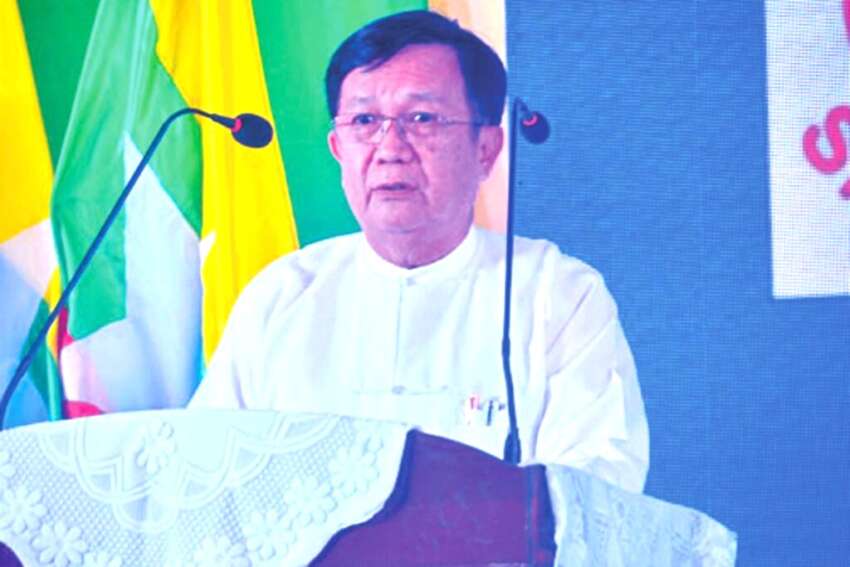
According to military sources in Naypyidaw and CDM Captain Zin Yaw, current military officers including Aung Lin Dwe, Mya Tun Oo, Tin Aung San, and six Deputy Generals will contest in the upcoming election under the Union Solidarity and Development Party (USDP). They will be distributed across the People’s Parliament, National Parliament, and State/Regional Parliaments.
High-ranking officials in the military commission and the State Administration Council, including Aung Lin Dwe, Minister Mya Tun Oo, and Minister Tin Aung San, will contest in both the People’s Parliament and National Parliament. Additionally, six Deputy Generals – namely Deputy General Khin Myint Than (Chief of Defense Industry), Deputy General Teza Kyaw (Commander of No. 3 Bureau of Special Operations), Deputy General Thet Pon (Commander of No. 6 Bureau of Special Operations), Deputy General Phone Myat (Chief of Military Affairs), Deputy General Lin Aung (Chief of Military Appointments), and Deputy General Soe Tint Naing (Military Inspector General) – will represent the USDP across all three parliaments.
According to the military source in Naypyidaw, these candidates are intended for positions including Speaker of the People’s Parliament, Speaker of the National Parliament, and Chief Ministers of regions and states. This current batch includes over 400 potential parliamentary representatives, with more batches expected to follow. CDM Captain Zin Yaw confirmed that the list submitted to the USDP includes former generals and retired deputy generals who are specifically intended for election candidacy.
The military source further revealed that Min Aung Hlaing has established a policy for the USDP to win in all constituencies in the upcoming December election. The military council has decided not to form alliances with any mainland political parties or ethnic parties. This marks the first direct participation of high-ranking military officers in elections since the military coup, demonstrating the military council’s attempt to maintain control through electoral processes.



